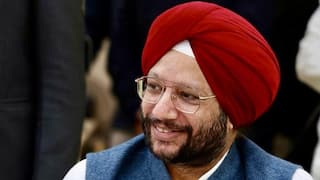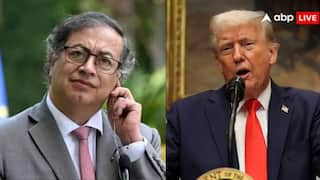Delhi Liquor Policy: SC Seeks ED's Response In Sanjay Singh's Bail Plea, Next Hearing On March 5
The court directed that Singh's latest plea, seeking bail in the PMLA case, be tagged with his earlier petition challenging his arrest and remand. The court will hear both petitions on March 5.

The Supreme Court on Monday issued notice to the Enforcement Directorate's (ED) seeking its response to a bail petition filed by the Aam Aadmi Party (AAP) MP Sanjay Singh. The court has also ordered tagging of his new petition with his earlier pending petitions.
A bench of Justice Sanjiv Khanna and Justice Dipankar Dutta issued notice to the ED in Singh's special leave petition against a February 7 ruling of the Delhi High Court denying him bail.
The court directed that Singh's latest plea, seeking bail in the Prevention of Money Laundering Act (PMLA) case, be tagged with his earlier petition challenging his arrest and remand. The court will hear both petitions on March 5.
ALSO READ | PMLA: Sisodia To Soren, The Law Sending Top Leaders Behind Bars Is Challenged In SC — All You Need To Know
Singh was arrested on October 4, 2023. Following his arrest, he was sent into judicial custody by a trial court.
Earlier, Singh had moved the top court challenging the Delhi High Court order that dismissed his plea against his remand and arrest in the alleged irregularities in the bow scrapped Delhi Excise policy. The apex court had issued notice to the ED seeking its response to Singh's plea.
The Delhi High Court dismissed Singh's plea challenging his remand and arrest saying that "no ground" was shown to award him relief. Singh was also denied bail in December 2023, by Delhi's Rouse Avenue Court.
Singh was arrested by the central agency following raids at his residence in Delhi. It is alleged by an employee of another accused in the case that he delivered Rs. 2 crores to Singh's house. The ED has said that it has digital evidence against Singh.
The CBI has alleged that the now scrapped Delhi Excise Policy of the AAP-led Delhi government, which granted licenses to liquor traders, favoured specific dealers who allegedly paid bribes for the licenses.
Related Video
Uttarakhand News: Winter Chill Grips North India; Kedarnath Dham Covered in Snow
Top Headlines





































